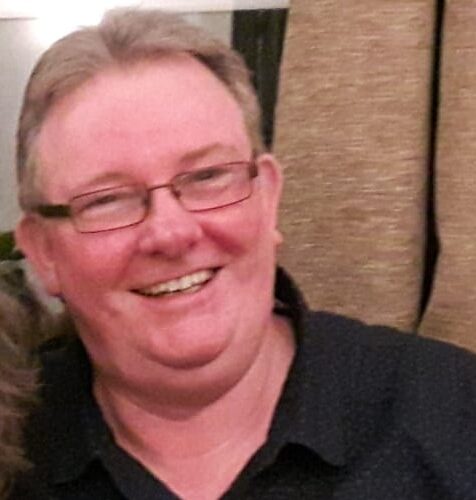
What can poetry do?
I’ve been thinking of what poetry can and can’t do in a week which saw both Amanda Gorman, the USA youth poet laureate, performing her poem at the inauguration ceremony of President Biden in Washington, and a reading by the ten poets short-listed for the T.S. Eliot prize in the UK.
The German philosopher, Theoodre Adorno wrote in 1949 it would be barbaric to write poetry after Auschwitz. So perhaps it is barbaric to write poetry after the end of Trump as president. But I would phrase the argument differently and say that after a disaster or series of political horrrors, the barbarism would be to stop writing poetry. In 1821 in his “Defence of Poetry, Shelley claimed that poets were “the unacknowledged legislators of the world” and he expected poets to write polemical/political poetry which he himself did after the Peterloo Massacre in Manchester in 1819 when a peaceful protest demanding universal suffrage was mowed down by sabre-wielding soldiers on the order of the prime minister. His poem was called The Masque of Anarchy where he encouraged ordinary people to:
`Rise like Lions after slumber
In unvanquishable number–
Shake your chains to earth like dew
Which in sleep had fallen on you–
Ye are many — they are few.’
Shelley thought or anyway hoped that poetry could help to bring universal suffrage. But it would take until nearly the end of the century to bring universal suffrage for men and till 1928 till all women were allowed the vote. Wilfrid Owen writing about WW1 and the pity of war, claimed the poetry was in the pity. As an example here are the first few lines of his poem Futility.
Move him into the sun –
Gently its touch awoke him once,
At home, whispering of fields unsown.
Always it woke him, even in France,
Until this morning and this snow.
If anything might rouse him now
The kind old sun will know …
The poet, W.H.Auden writing in memory of W.B.Yeats claimed poetry did nothing and that Yeats had been “hurt” into poetry by Ireland and its suffering. https://poets.org/poem/memory-w-b-yeats
I have to admit that I was shamed into writing poetry. Several years ago at a conference of secondary school English teachers, an education lecturer at Exeter University asked a group of us what we had been writing, “Reports,” we all muttered shame-facedly. “So how can you teach kids to write poetry if you don’t write it yourself. You are starting Now.” And so we did and I have never stopped.
I take comfort from the Polish Nobel Prize-winning poet, Wyslawa Szymborska who, when asking herself in one of her poems, what poetry was or did, admitted she didn’t know the answer, but continued by saying that she saw poetry as a “redemptive handrail” which she would hang on to. And perhaps that is as good an answer as any.
Gorman’s poem for Biden had many lines of general wishes and statements, cliches and well-worn phrases but it needs listening to rather than reading not so much for what it says as for the word play and image play, the redemptive handrail images. . Biden’s speech was similar in the generality of its hopes and wishes for reconciliation and good will, and perhaps that was exactly what was needed as antidote to four years of Trump language.
There is something moving and “redemptive” in the lines about herself and about the USA in Gorman’s poem:
“We the successors of a country and a time
where a skinny Black girl
descended from slaves and raised by a single mother
can dream of becoming president
only to find herself reciting for one.”
And also an echo of Shelley’s “rise like lions”.
“We will rise from the gold-limbed hills of the west.
We will rise from the windswept northeast,
where our forefathers first realized revolution.
We will rise from the lake-rimmed cities of the midwestern states.”
The poet who won the TS Eliot prize was Bhanu Kapil, a British poet of Indian descent who has lived and taught in both the UK and the USA and her winning collection How to Wash a Heart contains poems on present day political and social issues. Kapil’s immigrant guest addresses her liberal host, exploring how “it’s exhausting to be a guest / In somebody else’s house / Forever”. There are important questions asked in this poem, not easy to answer with the implication you can’t find all your answers on google. (I couldn’t help wondering how these lines would translate into French where the word for host and guest are the same!)
The host-guest chemistry
Is inclusive, complex, molecular,
Dainty.
Google it.
Does the host envelop
The guest or does the guest
Attract diminished forms
Of love…
The three poets on the T.S.Eliot Prize shortlist who presented me with the strongest “redemptive handrail” were Natalie Diaz, Ella Frears and Glyn Maxwell and that was because they offered more in the way of experiment with sounds, rhythm and rhyme, and images. The poems worked visually on the page and aurally in performance.
And of course Szymborska’s use of the word “redemptive” suggests poetry that may make both writer and reader feel better about the world or themselves so poets may well be accidental therapists, and therapists may use poetry in their work with clients.but hopefully that should be a bonus outcome, not the poet’s reason for writing.
Here are some lines from one of Diaz’s poems:
Ode to the Beloved’s Hips
Bells are they—shaped on the eighth day—silvered
percussion in the morning—are the morning.
Swing switch sway. Hold the day away a little
longer, a little slower, a little easy. Call to me—
I wanna rock, I-I wanna rock, I-I wanna rock
right now—so to them I come—struck-dumb
chime-blind, tolling with a throat full of Hosanna.
How many hours bowed against this Infinity of Blessed
Trinity? Communion of Pelvis, Sacrum, Femur.
My mouth—terrible angel, ever-lasting novena,
ecstatic devourer.
And here is what poetry can do in Ella Frear’s poem Fucking in Cornwall, (Shine Darling)
Her poem is a lesson on how to write powerful, effective imagery in simple language.
The bright morning sun is coming and coming
and the holiday children have their yellow buckets ready.
Do you remember what it felt like to dig a hole all day
with a tiny spade just to watch it fill with sea?
So if Owen’s imagery allows readers to experience the pity of war, Ella Frears’ imagery is able to conjure for readers the fun of fucking.
And as for Glyn Maxwell, several of the poems in his collection, How the Hell Are You? deal with the art of writing itself. In his book about writing poetry, Maxwell says all the poet has is the blank page and if the poet is not aware of this, they might as well be writing prose. And here are three quotations from those poems which seem to give the page power over the poet.:
May I say that when you’re gone
I get to work.
I got to work
just then. Back then
the second you were done,
from “Blank Page Gets To Work”
And now it dawns on you
you’re in a fight with something: what you make
is making something too,
and it’s something you don’t mean …. “The White”
And here is the poem telling the poet off in “One Gone Rogue” which begins with the claim that ’No one made me, nothing did.’ and continues
I’m no one’s. Clock me and I clock the fuck
right back at you I’ve never been begun.
I was never worked on why would I take work
and who would do it?
Glyn Maxwell seems to be saying that poetry can do what the hell it likes! But all the while we know perfectly well who has the upper hand.
|
|






